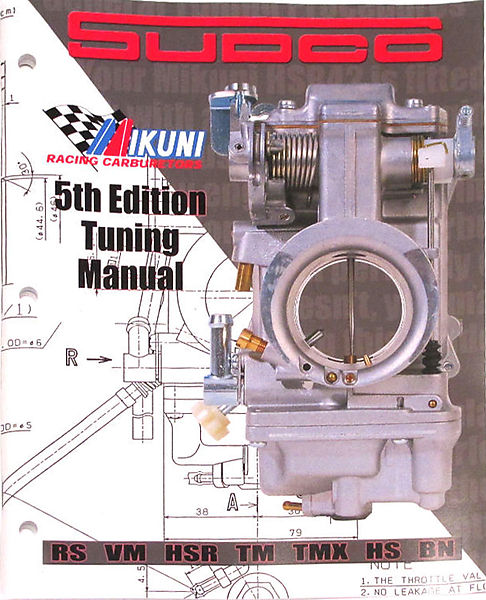Carburetor Jetting
Yamaha RD Carburetor Jetting
Correct carburetor jetting is important for proper combustion. If the carb is jetted too lean the combustion temperature could get too hot resulting in either a seized piston, or a hole melted right through the top. Just one size too lean is all it takes for possible disaster, therefore we offer you some guidelines that you want to consider as you refer to them. HVCcycle is in no way responsible for any damage to your motor as a result of applying any of our advice or tuning specs. If you need to do it yourself to save the money, just be willing to be learn and accept the consequences of a piston failure. Remember, you seize or burn-down, it's your fault! Our recommended method is play it safe; get several main jet sizes in the range you're working in, and just start a little rich & work down.
What is jetting?
Carburetor adjustments, usually involving changing of quickly-removable metering orifices called jets. Besides the jets, needle position adjustment, or changing, as well as changing slides are all part of the adjustments available.
Why the need for jetting in the first place? Any time a modification is made to the motor, such as install a different exhaust system, or air filter, you will need to re-jet the carbs to compensate for the difference in airflow. If air flow is enhanced, fuel flow must be adjusted accordingly. The optimum air fuel ratio is 15:1 for gasoline. It has to be just right. When exhaust gas temperature is optimum, 1250-1275 degrees F, the spark plug insulator will be a light tan color. Too hot & it'll burn light gray or white, too cool & it'll burn dark brown or black. Get familiar with exhaust note changes when jetting and get used to checking your plugs often. They are windows into your engine's soul. Other factors requiring jetting adjustments are changes in air density, altitude as well as types of fuel. Get a Sudco Mikuni tuning manual if you don't feel real comfortable with carbs. It's worth it's weight in gold.
Carb Jetting Guidelines - Just a ballpark range based on years of customer feedback and personal experience. Read your sparkplugs at different throttle settings, aim for a mocha, light brown color.
Remember, use these specs at your own risk! Play it safe - start rich & work down. The specs above are a general range for U.S. spec RD's at sea level. Higher altitudes or humid conditions will require proportionally leaner settings. If you're new to this, it helps to practice removing your carbs and replacing your main and/or pilot jets as well as adjusting the needle clip position. It doesn't take long before you're as quick as a pro & really inspires your tuning confidence. For a great carburetor website with lots of diagrams and charts go to www.sudco.com, For information on our tuning service |
Sudco/Mikuni Tuning A must for any do-it-yourself |
|
Listed below are jetting specs that we use quite a bit. If you have a similar set up you can try the jetting listed. |
JETTING |
|
1975 RD350 VM28 stock carbs. Y-boot and K&N filter JL exhaust TDR Reeds Iridium spark plugs Boost bottle new points and high capacity coils mild porting |
Needle Jet 175-P-0 Pilot Jet 27.5 Main jet will be between 180 and 240 Needle the same. Position, start in the center and go from there |
|
1973 RD350 VM28 Stock Carbs Uni Filter, Stock Air Box Stock Carbs VAPE Ignition Rebuilt Engine Stock Exhaust |
Needle Jet 175 0-8 (stock) Pilot jet 27.5 Main Jet 140 (stock) Needle clip position as needed air screw 1.5 turns out Plugs BR9HS |
|
1976 RD400 Cylinders .5mm over (64.50mm) Fresh rebuild HVCcycle Performance Heads JL Expansion Chambers Stock 28mm Carbs K&N Y-boot air filter |
Pilot Jet 27.5 Needle Jet 175-P-6 Needle 5N13 Main Jet 220 Air screw 1/2 turn out
|

